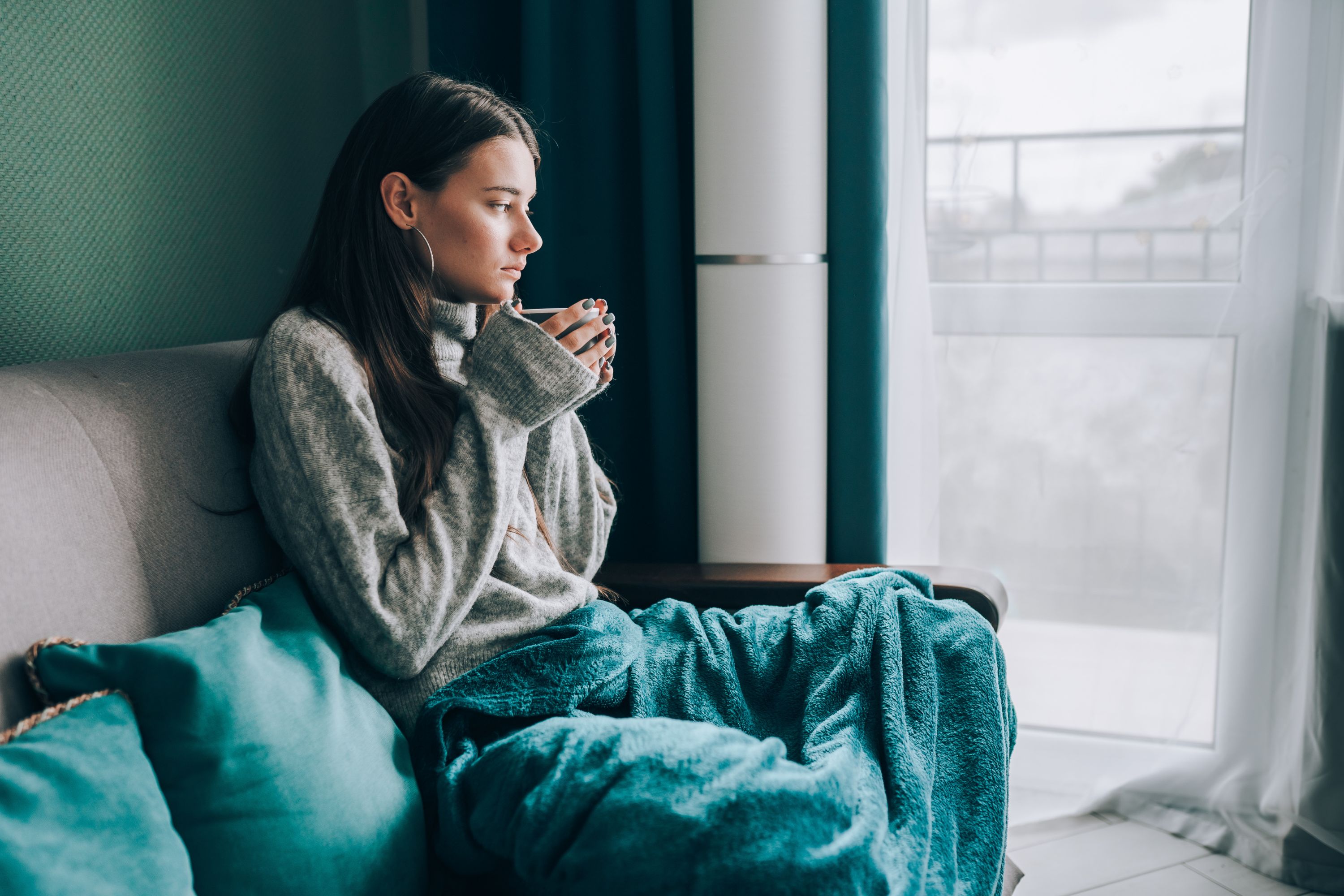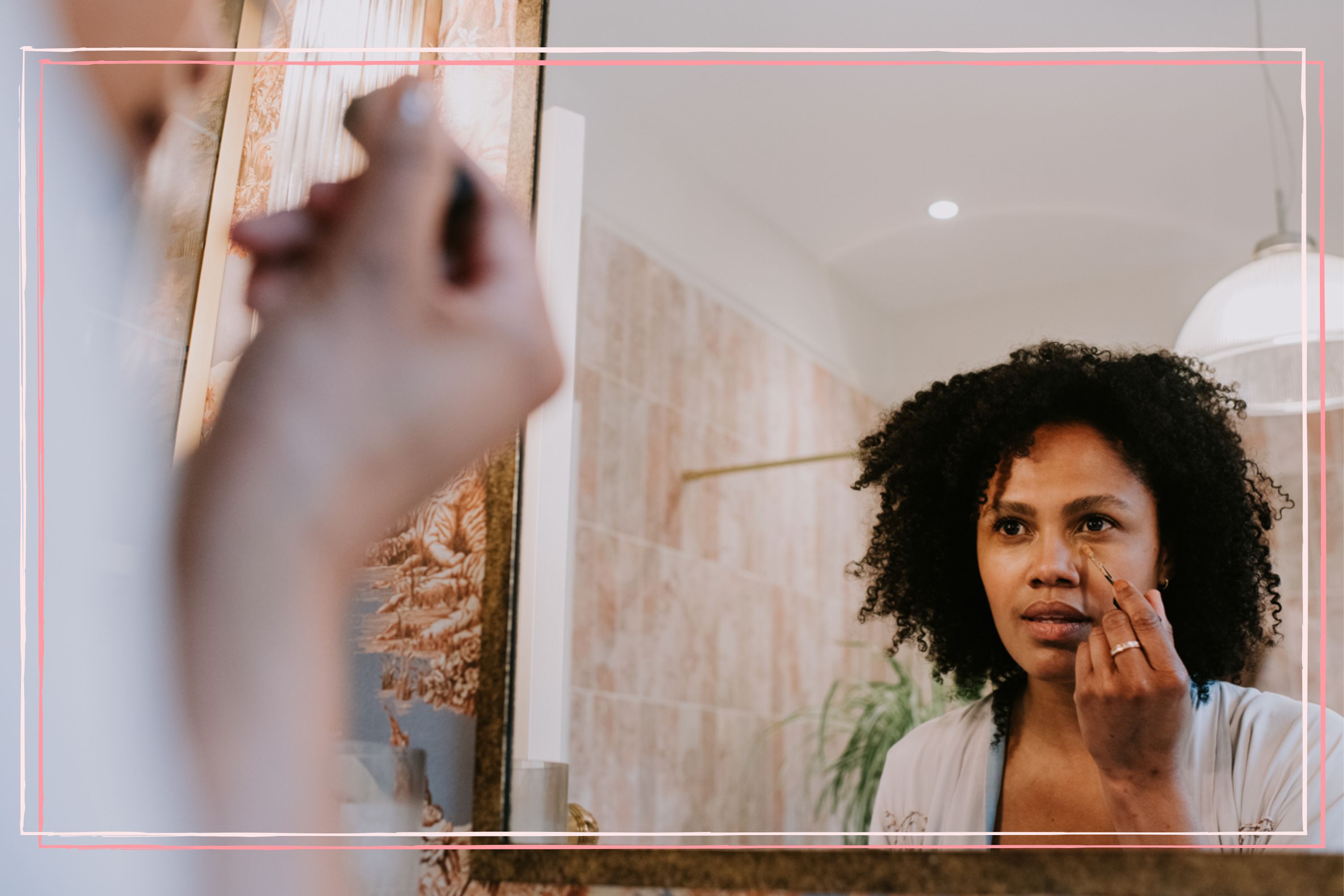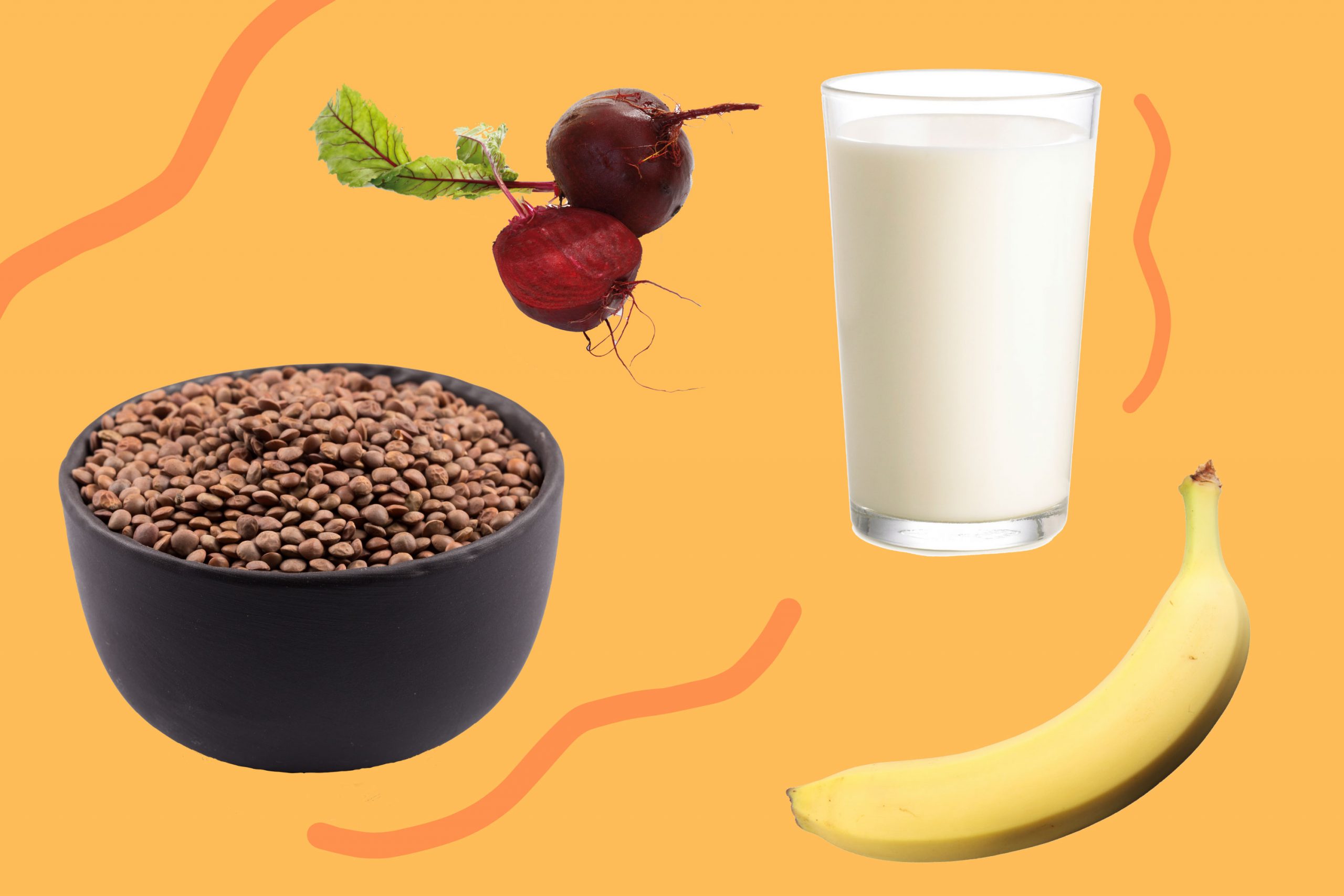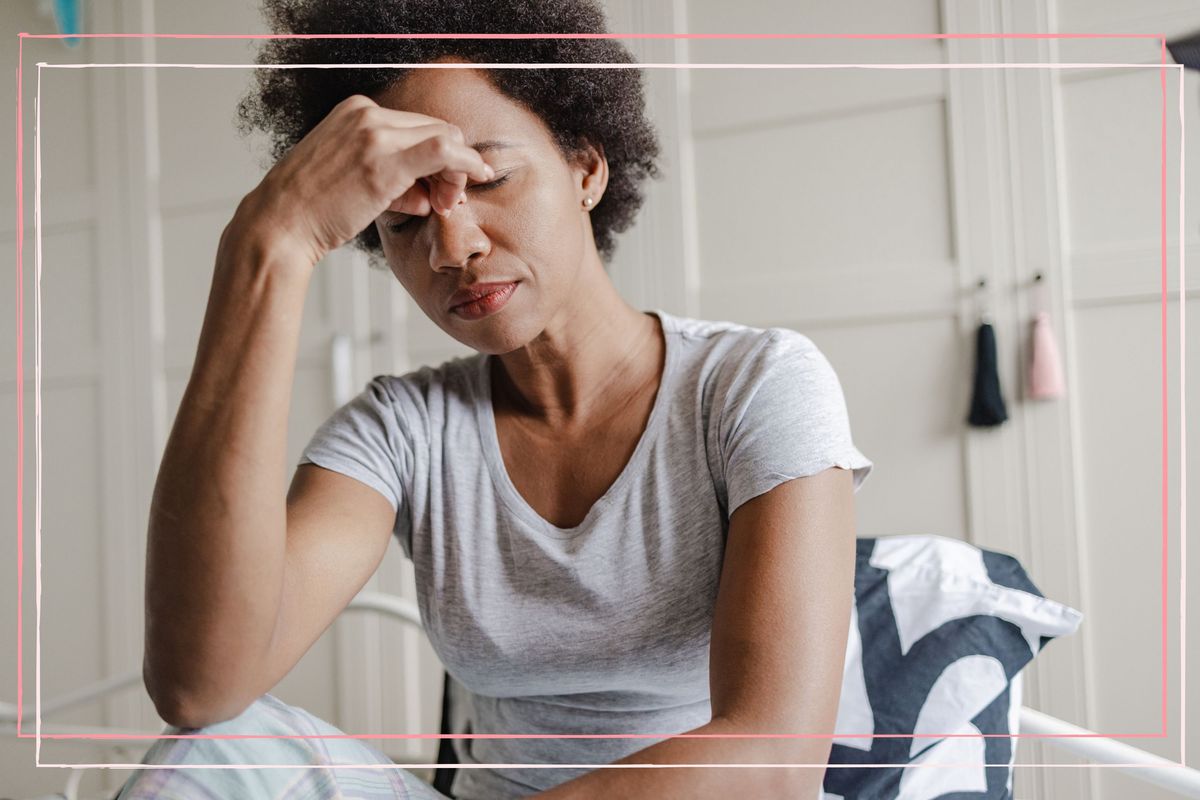How to beat the winter blues: 11 expert-approved tips for dealing with seasonal affective disorder
Many people find the colder months difficult, but there are ways you can beat the winter blues

Debra Waters

Known colloquially as the winter blues, if you're feeling so down that it's affecting your work and relationships you may be suffering from seasonal affective disorder (SAD). We've asked the experts how you can cope.
It's common to experience low mood and fatigue in the colder months, as the days are shorter and the sunlight is more limited. The change leaves many searching for ways to cope with the dark mornings on the school run and beat the January blues, but for some the symptoms of seasonal affective disorder can have a greater impact on their day-to-day life. Those who suffer the most may experience feelings of despair, a lack of motivation and symptoms of anxiety.
Consultant psychiatrist Dr Natasha Bijlani explains, "It's well recognised that SAD may be related to changes in the amount of daylight during autumn and winter months, which can affect the levels of serotonin and melatonin in the brain that influence mood. In those susceptible to SAD, not being exposed to sufficient light – on dull winter days – can lead to the development of the symptoms of SAD."
If this sounds like you, rest assured you're not alone - the NHS estimates that SAD affects around 2 million people in the UK. We've spoken to Dr Bijlani and other experts to find out what causes it, what the symptoms are and natural treatments you can try to help beat the winter blues and cope with the symptoms of SAD.
What are the winter blues?
Seasonal affective disorder (SAD) is a type of depression that comes and goes in a seasonal pattern. The symptoms are usually more apparent and more severe during the winter, but some may have symptoms during the summer and feel better during the winter.
"SAD is a recognised mental disorder and classified as such," says Dr Shungu Hilda M'gadzah, director and lead consultant psychologist at Inclusion Psychologists. "Many people have SAD - especially the 18-30 age group. Women are four times more likely to get it than men and children can get it, too," she adds.
Figures vary but "SAD may affect up to 9% of the British population to some degree," adds Dr Bijlani. "Millions may suffer and many may not know they have the condition," she says. "It's more common in those living further north, where there are shorter daylight hours in the winter."
Parenting advice, hot topics, best buys and family finance tips delivered straight to your inbox.
While these statistics sound alarming, most cases are mild. "For many, it really isn’t anything to worry about," adds Dr M'gadzah. "A few changes and adjustments to your daily routine can make all the difference."
Seasonal affective disorder symptoms
- Feeling low and depressed
- Feeling excessively tired during the day and needing to sleep for longer
- Having difficulty waking up in the morning despite having more sleep
- Social withdrawal and loss of pleasure and interests
- Loss of libido
- Feelings of anxiety, as well as irritability, tension and stress and anxiety
- Carbohydrate cravings, waking up in the night to eat, and weight gain
- Feelings of despair, guilt and worthlessness

11 natural ways to deal with winter blues
1. Use a light box
A study in the The Einstein Journal of Biology and Medicine showed that – especially for those of us living in the northern hemisphere – replacing the light we are deprived of in winter can have a positive effect on seasonal affective disorder. This is done by using a special light box such as a Lumie SAD Light, which mimics natural daylight to deliver a natural mood and energy boost.
Dr Bijlani told us, "People with SAD sometimes need four hours a day of special bright light at 10 times the intensity of ordinary lighting. It's a simple treatment. When it's used regularly throughout the winter months it can take away the worst of the feelings."
Another study published in the journal PLOS Genetics showed that using a light box can have a positive effect on the circadian rhythm (our sleep-wake cycle). "The light emitted from a SAD light box can help to regulate your natural circadian rhythm, thus helping to improve energy and mood," explains Dr Naomi Newman-Beinart, a nutritionist and chartered psychologist.
If you're prone to the winter blues, however, don't wait until you're feeling down to give this remedy a go. "I suggest starting to use the light box in autumn as a prevention and to continue until spring," Dr Newman-Beinart says.
Guidance for buying light boxes can be found on the SADA website.
Lumie SAD Light - £70.54 | John Lewis
This sleek light therapy device is slim and portable so it's ideal to use at home, work or college. Boasting powerful illumination with 10,000 lux at 20cm, just 30 minutes a day can provide an effective treatment for winter blues and SAD. Its versatile design allows for both portrait and landscape positions.
2. Talk about your feelings
If you're feeling low, an important thing to remeber is that you're not a burden to others. Keep in mind that a problem shared is a problem halved.
"Open up to someone you trust about how you’re feeling," says Liz Joy Oakley, a yoga instructor and head of wellness at MoreYoga. "Sharing what you’re experiencing can help take the weight off your shoulders and help you to get the support that you need."
In fact, talking may be a better cure than light therapy. A 2015 study published in the American Journal of Psychiatry found that, in the long-term, cognitive behaviour therapy (CBT) was even more effective at treating seasonal affective disorder than using the light method – so don't be afraid to reach out.
"Psychological treatment focusing around cognitive behaviour therapy – a talking therapy – can be helpful," says Dr Bijlani.
If you think CBT might be a good option, you can find a therapist on the British Association for Behavioural and Cognitive Psychotherapies (BABCP) website, or you can go through your GP. It doesn’t work for everyone, though, so if it’s not for you don’t be disheartened – there are other ways to manage low mood.
3. Step into the light
If you're prone to the winter blues, daylight can significantly improve your mood. Even on cloudy days, it's worth getting outside to enjoy some fresh air - try to take a walk around midday, when the sun is at its strongest.
You can also find ways to get more light even while you're still inside - whether you're working from the office or looking after the kids. "For some people with mild symptoms, these can be alleviated by working in more brightly lit areas. And keep blinds wide open during the day," says Dr Bijlani.
The south side of houses and buildings in the northern hemisphere see the most hours of sunlight each day, so keep this in mind next time you're choosing where to set up for the day.
4. Embrace the outdoors
Nature really does have the power to heal and one way of harnessing this is to practise a Scandinavian way of living called 'friluftsliv'. Translated as 'open-air living', friluftsliv can make a huge difference to your mental health all year round.
"Countless studies have shown that engaging in outdoor activities during the winter months is 99.9% effective in reducing the symptoms of SAD," says Oliver Luke Delori, author of The Nordic Art of Friluftsliv: Reconnect with Nature.
"Why not go for a walk, climb a mountain (and slide back down) or simply put on your boots and jump in a puddle? Give yourself a breath of fresh air by gazing up at the stars or singing in the rain. I promise you will forget about your problems for a while and feel much better about your life," he says.
And Oliver is definitely onto something, because a study in the Landscape and Urban Planning journal found that participants who went on a 50-minute walk in a natural setting reported decreased anxiety and improved cognition.

5. Take certain supplements
"Unlike real sunlight, a lightbox will not give you vitamin D, so I highly recommend that everyone takes a high-quality multivitamin and mineral complex including vitamin D throughout winter," says Dr Newman-Beinart. She points out that there are numerous studies suggesting that vitamin D deficiency is linked to depression.
Nutritionist Alexandra Emerson-White adds, "Even with sun exposure, in the UK sunlight doesn’t contain enough UVB radiation between October and March for our skin to make vitamin D." A daily supplement containing vitamin D can make up for this.
Holland & Barrett Vitamin D 240 tablets - £5.49
Vitamin D is one of the body’s most important vitamins and Holland & Barrett Vitamin D3 contributes towards the maintenance of normal bones, muscle function and the immune system.
There's also some encouraging research that indicates taking a melatonin supplement can ease symptoms. Melatonin is a hormon used to treat sleep problems and one 2006 study from Oregon Health and Science University found that a melatonin supplement relieved the symptoms of the winter blues. However, it's only available on prescription in the UK as it can have unwanted side effects and interact with other medications. You should also bear in mind that melatonin is not usually recommended during pregnancy because little is known about its effect on babies.
6. Eat a balanced diet
A balanced diet is important in maintaining pretty much every aspect of our physical and mental health. But it's even more integral to your wellbeing if you're suffering from seasonal affective disorder. As well as consuming plenty of fresh fruit, veg and protein, consider cutting down on or giving up alcohol, fast processed food and fizzy drinks.
"Supplements alone cannot prevent seasonal affective disorder," says Alexandra."However, getting an optimal intake of nutrients such as vitamins B & D, and omega-3 fatty acids may help reduce symptoms. These nutrient deficiencies are associated with mood disorders."
Get your fill of omega-3 by eating fatty fish such as salmon, sardines, tuna and trout. Or eat nuts and seeds such as walnuts, chia and flaxseeds.
Green leafy vegetables also contain some omega-3 and you can also buy eggs fortified with this fatty acid. If you're a veggie or vegan and you're concerned about your omega-3 intake, you can take a supplement made from algae instead.
Holland & Barrett Vegan Omega 3 Oil 60 capsules - £15.99
Pure Algal Oil is made from marine algae and contains DHA, a rich plant-based source of Omega 3 suitable for vegetarian and vegan diets.
7. Don't live in isolation
You may feel like going back to bed or not answering messages from friends and family when you're suffering from seasonal affective disorder, but keeping in touch with your loved ones is a big part of staying well.
"If we’ve learnt anything from over the past few years, it’s the importance of connection and the negative impact isolation can have on our health," says Liz Joy Oakley. If you've been feeling low, schedule a phone call with someone you trust and explain that you're feeling a bit wobbly, or go for a coffee or a walk with a friend, even if you don't feel up to it.
A 2022 study published in the scientific journal PLOS One found a strong association between a lack of social connectedness and the risk of depression, further highlighting the importance of not isolating yourself if you're struggling with low mood.

8. Get your sleep in order
Being excessively sleepy during the day, struggling to get up in the morning, and sleeping longer than you usually do are symptoms of depression and SAD.
"It’s recommended that adults from the age of 18-64 need 7-9 hours sleep and 65+ need 7-8 hours," says Liz. "Getting too much or a lack of sleep can negatively impact your mental and physical health, so it’s important to make sure you are sticking to a healthy sleeping pattern when the days are shorter and nights are longer."
Of course, a regular sleep pattern is not something many parents have control over. Trying to fit in life and raising kids doesn't equal eight hours of solid sleep a night, but the good news for mums and dads who are woken by their kids at the crack of dawn is that this could actually be a good thing when it comes to beating the winter blues.
This is because a 2021 study in the JAMA Psychiatry journal found that getting up an hour earlier than you usually do can cut a person's risk of major depression by up to 23%.
Another top tip for improving your sleep is turning off your phone an hour before you intend on turning in for the night.
9. Invest in some CBD oil
Sales of CBD oil have exploded in recent years, as more people turn to natural anxiety remedies to manage stress or low mood.
"Another natural solution to support SAD symptoms could come from CBD oil," Dr Newman-Beinart explains. "This wonder oil has recently made it to the forefront of popular wellness. It can help with anxiety, stress and poor sleep, some of which you may be feeling as part of SAD."

This lightly sparkling, CBD-infused peach and ginger drink is powered by natural botanicals with no added sugar. The box of four from Waitrose is best enjoyed cool - try it in the morning to help find some calm before a long day, or take a TRIP to unwind when work is over.
10. Take up yoga
While longer nights coupled with a low mood can also affect our energy levels and make us feel lethargic, yoga will not only help your body but your mind, says instructor Liz.
"A quick remedy is movement and yoga has so many benefits mentally and physically. It's a natural way to increase serotonin production and support your nervous system," she says.
In fact, one scientific review found a multitude of mental health benefits associated with practising yoga. Not only did individuals with elevated depression levels benefit from yoga, but depression symptoms also improved among caregivers, pregnant women and patients suffering from lower back pain too.
If you can't face going to a class, try an online session from the comfort of your own home. You can try one for free with a number of fitness apps, including Nike Training Club, Simply Yoga, Grokker and 5 Minute Yoga.
11. Go for regular exercise
You don't have to spend hours at the gym or do gruelling workouts to lift your mood. Even short bursts of cardio (such as a quick cycle or even just running up the stairs) can make a difference – as can a short run. Recent research from the University of Tsukuba in Japan indicates that even a 10-minute run of moderate-intensity can improve mood and cognitive function.
"Exercising produces endorphins in the brain, which stimulate feelings of happiness. Take a walk at lunchtime, play a sport or be active in a way you enjoy," advises Dr Bijlani.
Once again, apps like Nike Training Club can help you find a type of movement you enjoy - whether you're after a 10-minute stretch that can be completed in front of the TV, or a 30-minute strength workout for your next gym session.
When to see a doctor
If you think you might have SAD and are struggling to cope, you should make an appointment to see your GP. Your doctor might give you a diagnosis of SAD if there is a seasonal pattern, but if not they can still help with symptoms of depression and anxiety.
"There are several ways to treat SAD. If you think you have SAD, it’s important to speak to your GP and find a treatment that's right for you," says Dr Newman-Beinart. "You're likely to be told to get as much natural daylight as possible, or to try talking therapies."
However, if those remedies don't help medication is available, such as such as selective serotonin reuptake inhibitors (SSRIs), which are often used to treat depression.
Continue reading

Calling all tired mums! I'm a beauty editor and these 39 products will help you look and feel fresh.

These 20 foods will help give tired parents more energy (when you haven't slept because of your kids!).

16 possible reasons you're feeling exhausted - and what you can do to stop feeling so tired all the time.

Ellie is GoodtoKnow’s Family News Editor and covers all the latest trends in the parenting world - from relationship advice and baby names to wellbeing and self-care ideas for busy mums. Ellie is also an NCTJ-qualified journalist and has a distinction in MA Magazine Journalism from Nottingham Trent University and a first-class degree in Journalism from Cardiff University. Previously, Ellie has worked with BBC Good Food, The Big Issue, and the Nottingham Post, as well as freelancing as an arts and entertainment writer alongside her studies. When she’s not got her nose in a book, you’ll probably find Ellie jogging around her local park, indulging in an insta-worthy restaurant, or watching Netflix’s newest true crime documentary.
- Debra WatersFreelance Lifestyle Writer




